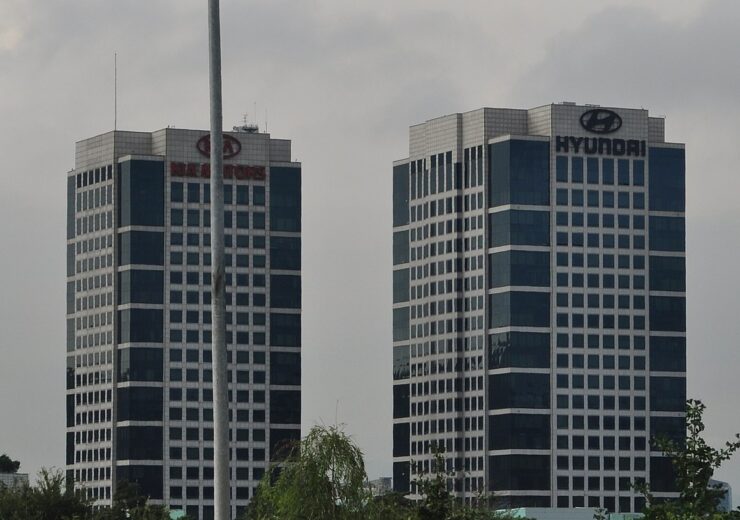The company plans to launch 17 new BEV models by 2030, while achieving sales of 1.87 million BEVs per year

Headquarters of Hyundai Motor in Seoul. (Credit: HappyMidnight/Wikipedia.org)
Hyundai Motor plans to invest KRW19.4 trillion ($16.07bn) for the electrification of its vehicles through 2030 with an aim to secure a 7% share of the global electric vehicle (EV) market by the end of this decade.
The South Korean automotive manufacturer has also unveiled a new roadmap to its shareholders and investors at the ‘2022 CEO Investor Day’ virtual forum to expedite its electrification goals. It is targeting to sell 1.87 million battery electric vehicles (BEVs) annually by 2030.
Hyundai Motor has also revealed plans to launch 17 new BEV models by the end of this decade. Of these, 11 will be Hyundai models, while the remaining six will be for the Genesis luxury brand.
Hyundai Motor President and CEO Jaehoon Chang said: “Hyundai is successfully accelerating its transition to electrification and becoming a global leader in EVs despite a challenging business environment caused by the global chip shortage and ongoing pandemic.
“Along with our seamless efforts to improve EV value, Hyundai Motor will continue to secure its business sustainability as a ‘Mobility Solutions Provider’ through advanced technologies of not only hardware but also software.”
Overall, the South Korean group plans to invest KRW95.5 trillion ($79.09bn) for future businesses by 2030. The company will invest KRW12 trillion ($9.94bn) of this towards software capabilities with the amount to be spent on enhancing connectivity, autonomous driving, and information and communications technology among others.
By 2030, Hyundai Motor aims to see an operating profit margin of 10% or more in its EV businesses. For this, the group plans to improve competitiveness in hardware and software capabilities with an enlarged line-up.
On a consolidated basis, the company is targeting an operating profit margin of 10%.
The South Korean company also revealed plans to introduce an integrated modular architecture (IMA) in 2025. The IMA will be used as Hyundai Motor’s passenger BEV platform as well as its exclusive purpose-built vehicle (PBV) platform for optimising production processes and to cut down costs.
Last October, Hyundai Motor’s automotive supply business Hyundai Mobis announced an investment of around $1.1bn to build two fuel cell plants in South Korea.


